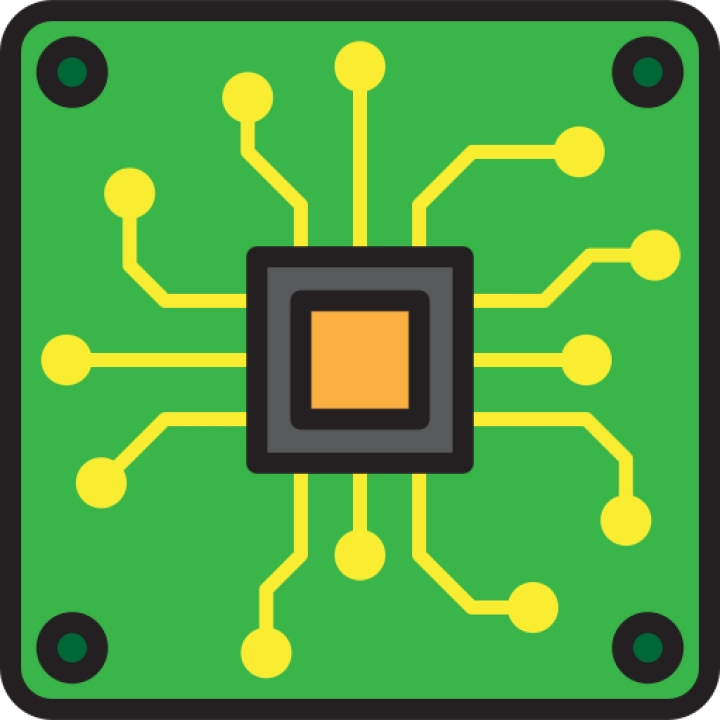Faculty: Vocational School
This major offers a comprehensive understanding of the principles and practices of electronic technology, focusing on the design, development, and application of electronic systems and devices. Students will explore key topics such as circuit design, digital electronics, microcontrollers, and communication systems. The major emphasizes the integration of theoretical knowledge and practical skills to prepare students for careers in electronic engineering, telecommunications, and related fields.
Learning Objectives:
- Understand the fundamental principles of electronic technology and its role in modern engineering.
- Develop skills in the design and analysis of electronic circuits and systems.
- Learn programming techniques and interaction with microcontrollers.
- Explore the principles of digital electronics and communication systems.
- Understand the impact of emerging technologies, such as the Internet of Things and embedded systems, on electronic technology.
- Analyze challenges and job opportunities in electronic technology.
- Develop critical thinking and problem-solving skills to address challenges in electronic technology.
Main Outline:
- Introduction to Electronic Technology
- An overview of electronic technology, its history, and its importance in modern engineering.
- Design and Analysis of Circuits
- Basics of circuit design, including analog and digital circuits.
- Techniques for analyzing and improving electronic circuits.
- Digital Electronics
- Principles of digital electronics, including logic gates, flip-flops, and microprocessors.
- Techniques for designing and implementing digital systems.
- Microcontrollers and Embedded Systems
- Basics of microcontrollers, including programming and interfacing.
- Techniques for developing and implementing embedded systems.
- Communication Systems
- An overview of communication systems, including modulation, transmission, and reception.
- Techniques for designing and analyzing communication systems.
- Emerging Technologies in Electronic Technology
- The impact of emerging technologies, such as the Internet of Things, artificial intelligence, and wearable electronics, on electronic technology.
- Techniques for integrating new technologies into electronic systems.
- Ethics and Professional Practice in Electronic Technology
- An overview of ethical and professional considerations in electronic technology.
- Techniques for ensuring ethical and professional conduct in electronic engineering.
- Applications of Electronic Technology
- Principles of applying electronic technology to real-world problems in fields such as healthcare, automotive, and consumer electronics.
- Techniques for developing and implementing electronic solutions for complex problems.
Assessment Methods:
- Circuit design and analysis projects to assess practical skills.
- Written assignments and research papers to assess knowledge in digital electronics and communication systems.
- Presentations and reports on microcontroller programming and emerging technologies.
- Participation in group projects and electronic system design.
Recommended Textbooks:
- "Electronic Devices and Circuit Theory" by Robert L. Boylestad and Louis Nashelsky.
- "Digital Design" by Morris Mano and Michael Ciletti.
- "The Art of Electronics" by Paul Horowitz and Winfield Hill.
Prerequisites:
Basic knowledge in mathematics and physics is recommended. This major is suitable for students in electronic engineering, telecommunications, and related fields.
Duration:
Typically, this major lasts for four academic years, combining lectures, lab sessions, and practical exercises.
Certification:
Upon successful completion, students may receive a degree in electronic technology, depending on the program and institution.
Target Audience:
This major is designed for undergraduate and graduate students in electronic engineering and telecommunications, as well as professionals seeking to enhance their skills in electronic technology. This specialization prepares students and professionals to excel in the field of electronic technology, leveraging theoretical knowledge, practical skills, and understanding of emerging technologies to effectively design, develop, and apply electronic systems and devices.







